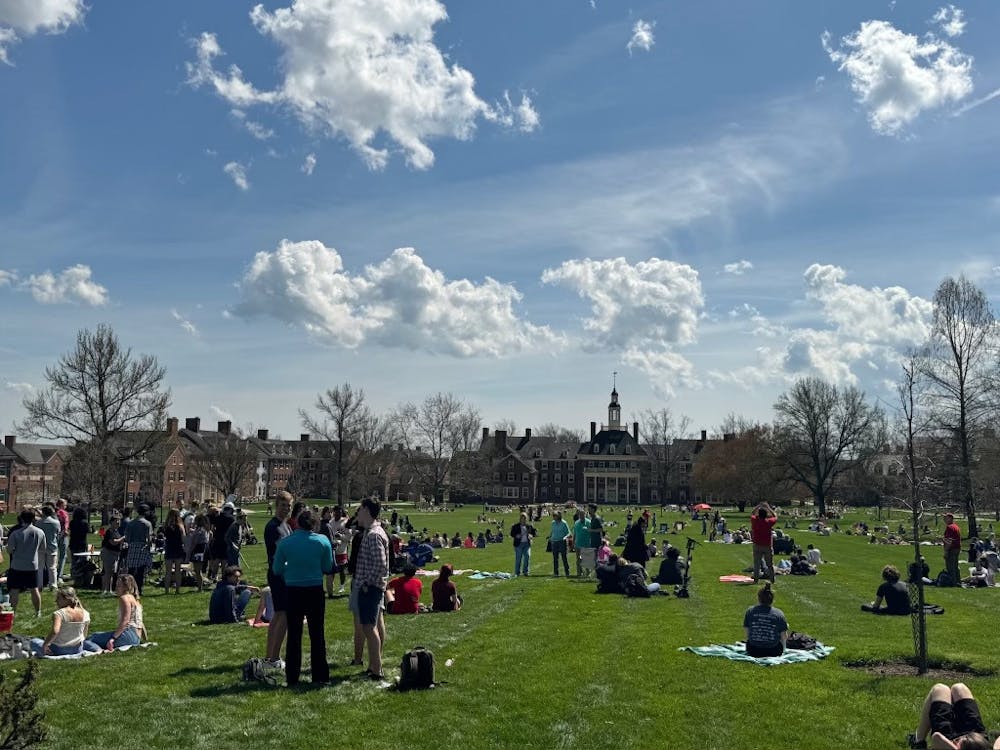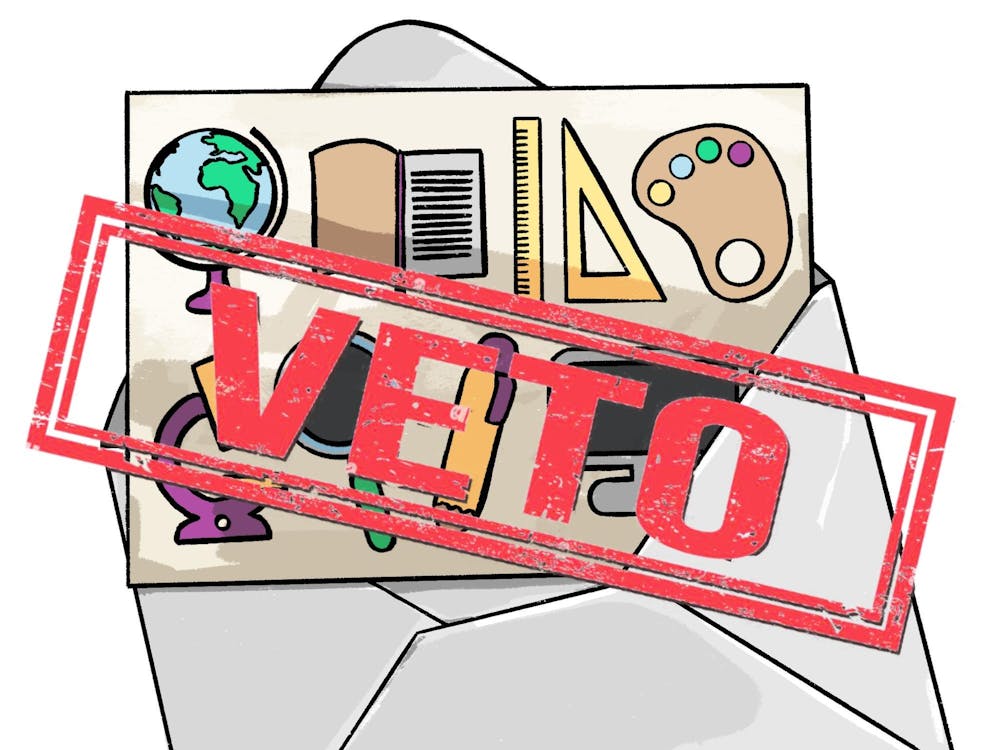What Oxford experienced earlier this week was truly fascinating, but also dangerous in a sense. I don't mean dangerous from an eyesight perspective, but from a health perspective.
I am a Miami University student, but I don’t live on campus, I commute. However, I can’t drive due to my disability, so I have to rely on the bus.
I live in Hamilton which, nonstop, is about 25 minutes away from Oxford. However, when you take the bus there is no such thing as nonstop. From the time I get on the bus to the time I get off, it’s a little over an hour. Then I have to walk home from the bus stop.
Officials warned about delays on the day of the solar eclipse months in advance. They said amid roadblocks, trips could possibly take four times longer than normal.
I knew the solar eclipse would pose an issue for me as soon as I heard about it. Then I found out we were in the path of complete totality, and that totality would happen when I was starting my commute home on the bus.
I knew right then that I was screwed. Some people thought I was catastrophizing. Instead, I was planning ahead to avoid catastrophe.
I have several complex medical conditions, the most pressing one being autoimmune insulin syndrome, a diabetes condition that causes my blood sugar to drop very quickly and without warning. If it drops too fast and goes unnoticed and untreated for too long, I can end up unconscious, and my other conditions become exacerbated.
I have to do many things to keep it in check: wearing a continuous glucose monitor, taking medication and eating on time.
It’s the requirements that posed issues during the eclipse.
I not only have to eat snacks, but also each of my full meals on a schedule. Moreover, because of my mobility issues, I can’t easily carry a cooler or lunchbox on me in case I can’t access food for one of my meal times.
The likelihood of the bus getting stuck in gridlock was high, and if anything happened, there was also the potential that emergency services wouldn’t be able to get to me easily or at all, as the bus route goes down some one-lane roads.
About six weeks ago on the bus, I suffered a medical emergency related to my blood sugar, and I just recovered from that. The bus driver was scared out of her mind but followed the procedures to get me help.
Enjoy what you're reading?
Signup for our newsletter
Another medical requirement of mine is getting a set amount of sleep each night. If I don’t, I end up sick the next day.
Besides the possibility of missing a meal, the possibility was very high that the post-eclipse delay would mean I got home too late. Not only does that mess up my sleep cycle, but it messes up my medication schedule.
A lot of people told me I could just skip classes the next day if I got home too late. But that doesn’t solve the distinct possibility that I would miss a meal, and have a medical emergency before I even got there.
As eclipse day got closer, I talked to several people and evaluated my options. The conclusion all of us came to was the same: the danger was too great.I paid $209 plus tax and got a hotel room in Oxford for the night.
Living on a fixed income, I have to watch my spending. I don’t spend large amounts of money all at once unless I have to. Yet, based on how risky it otherwise was for me to try and make it home, I had to.
My mom was not too happy about me having to spend the money either, but as she put it, “I don’t see any other way around it.”
I wouldn’t get an Americans with Disabilities Act (ADA) room as those were all booked. But that was OK, as long as I could get my chair into the room. I’m able to walk around after that.
While the solar eclipse is a momentous event, the majority of people don’t realize how dangerous the aftermath of it can be for somebody like me. If we don’t have a plan, we’re doomed. Literally.
I very much appreciate all the hard work the officials around the state did to ensure the experience was as safe and enjoyable as possible, but that still doesn't change the amount of risks present for me with things like this.
I did watch the eclipse, but from the window of my hotel room. I looked out the window in awe of how dark it was. It was 3 p.m. in the afternoon and the streetlights came on. I saw people across from me standing on the roof looking at the sky and taking pictures.
As I watched, I thought about the dangers that this once-in-a-lifetime event posed to my health, and was very thankful that my student job, along with my Social Security Disability Insurance, allowed me to have the funds to keep myself safe and healthy.
I’d rather not think about what would’ve happened if I had to risk it.
The solar eclipse has come and gone, and I’m safe from medical emergencies. Despite the good of the experience, the thoughts of what could’ve happened will always be there.




